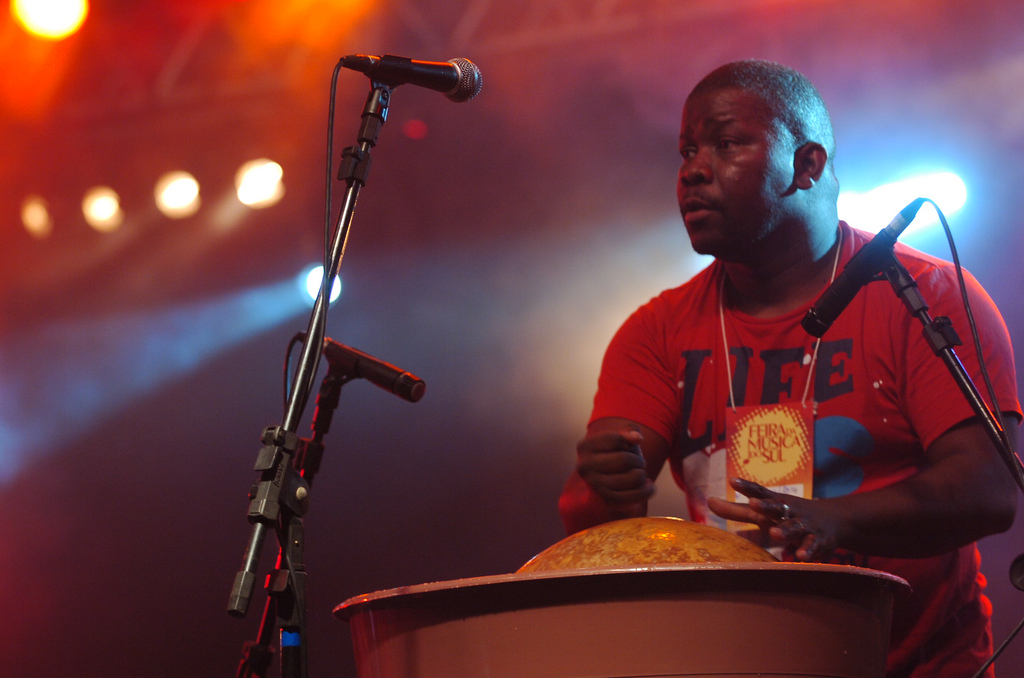Manecas Costa’s superb record Paraiso di Gumbe highlights the infectious national rhythm, the gumbe, and features songs about his own Balanta people; the forest shrine he visits and other more personal subjects. But much of it is about the problems of the country: hunger, corruption, suffering, poverty – the familiar tragic African litany.
Costa says he remembers the joy of independence when he was eight years old in 1974: ‘There was a big fiesta, a continual party that went on for days; everybody drinking beer and dancing. There was a lot of hope. After that great moment, what did we achieve, how have we progressed? I would love to just write about love, women and happiness. Look around – it’s a tropical paradise, but I see misery around me here.’
The Portuguese left the country with little infrastructure, and coups, civil war and border disputes made conditions worse. For musicians, life was always a struggle and often dangerous. As a boy, Costa remembers ‘…the sound of gunfire, troops in the street. I remember hiding under my bed.’ He recalls how, when he was 14, ‘I was in the audience when a friend sang an opposition song. I heard one of the army guys say, “Does he know he’ll be in jail or dead tomorrow?” As I was his friend, I had to go into hiding. My father was terrified for my life.’
Still, there were some perks under the Soviet-backed post-independence government – the Cubans came in numbers and one of them gave Costa guitar lessons. Another problem for musicians, which explains the scarcity of Guinea-Bissau albums, is that there are no recording studios in the country. ‘The only place you could record was at the radio station, and it was very poor quality,’ Costa said. Eventually, he went into exile in Lisbon and recorded some tracks which, via a compilation called Palop Africa, came to the attention of his album’s producer, Lucy Duran.
Guests include the glamorous Ira Tavares and Venezuelan harpist Carlos Orozco. The end result – great, well-sung tunes, mainly in creole Portuguese – is the international debut of an African star who has begun to put Guinea-Bissau on the musical map. The album is named after the top club in Bissau, where Costa spent a lot of time in the early 1980s when local band Super Mama Djombo were becoming known in West Africa, if not globally. ‘It was a magical place, an outdoor club under the stars … It’s a mosque now.’ The opening track of Paraiso di Gumbe, “Nha Mame”, tells how Costa’s late mother comes to him in dreams: ‘I would like nothing more than for her to see the fruits of her efforts to educate me and encourage me in music. If only I could see her dance again.’
Header image: Flickr







